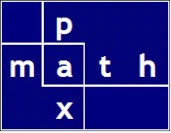Contents
II. The fallacy of attributing to one cause what is due to many causes.
III. The fallacy of concluding that because one factor plays a role, another does not; the fallacy of drawing negative conclusions from positive observations.
IV. The fallacy that the characteristics of organisms are divisible into two distinct classes; one due to heredity, the other to environment.
Blog Editor’s Note: I can find no reference to V or VI.
VII. The fallacy of basing conclusions on implied premises that when explicitly stated are rejected. Many premises influencing reasoning are of this hidden, unconscious type. Such ghostly premises largely affect biological reasoning on the topics here dealt with; they underlie several of the fallacies already stated, and several to come.
VIII. The fallacy that showing a characteristic to be hereditary proves that it is not alterable by the environment.
IX. The fallacy that showing a characteristic to be altered by the environment proves that it is not hereditary. It appears indeed probable, from the present state of knowledge and the trend of discovery, that the following sweeping statements will ultimately turn out to be justified:
(2) All characteristics may be altered by changing the environmental conditions under which the organism develops; provided that we learn what conditions to change and how to change them.
(3) Any kind of change of characteristics that can be induced by altering genes, can likewise be induced (if we know how) by altering conditions. (This statement is open to more doubt than the other two; but it is likely eventually to be found correct.)
XI. The fallacy that since all important human characteristics are environmental, therefore environment is all-important, heredity unimportant, in human affairs. — H. S. JENNINGS
This argument reminds me of that cliche about Columbus deciding not to leave for the new world because in a few hundred years jet liners will be invented. — X on November 24, 2006 at 16:55
Do your best work,
Revisit next morning and edit out errors,
Revisit next week and edit out errors,
Revisit and run several arbitrary (though maybe realistic) test cases, edit out errors. — klh
Stay in close touch with people that know things, that think about things, that do things. Visit with them, discuss things in person, be hands-on with all your interests. Reading is fine but no replacement for physical interaction. Gather your own evidence; direct, develop, and hold dear your own experience. Even if it is of a trivial nature — your physical actions, your sensations, your encounters — are far more valuable than that obtained second or third hand. — klh





